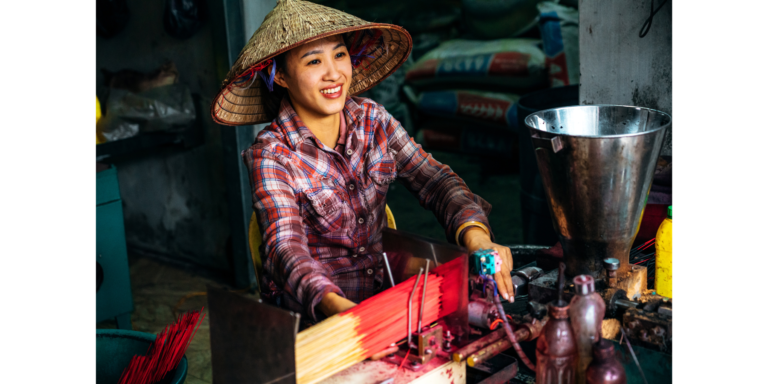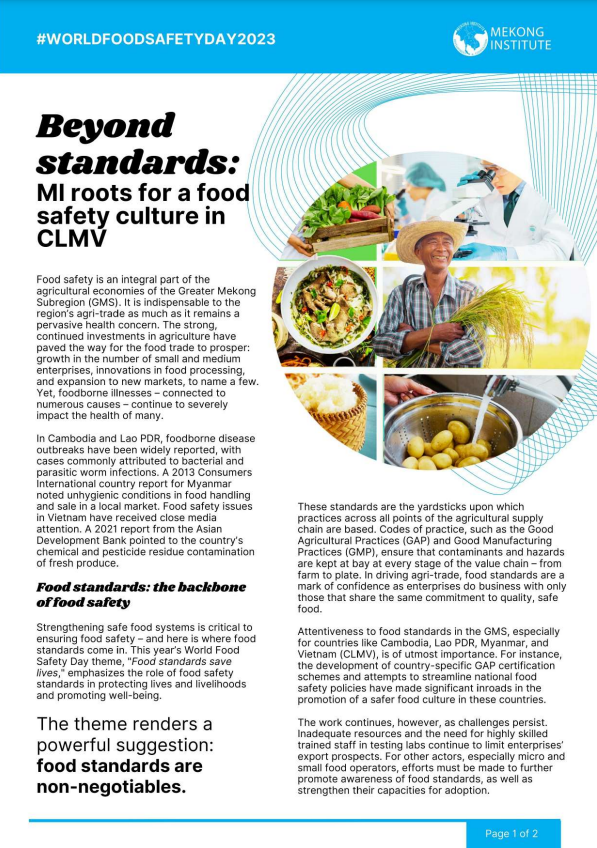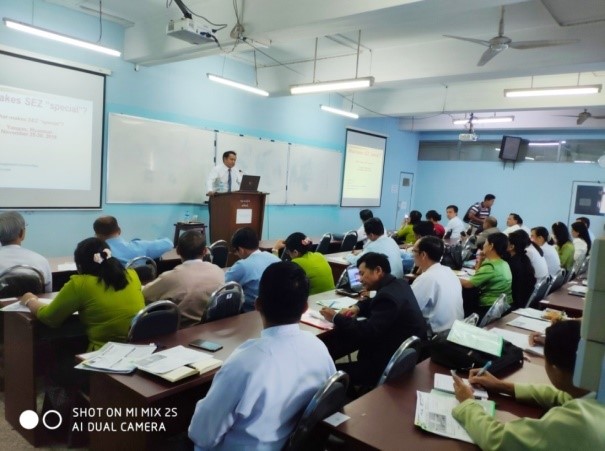Author: Than Tha Aung
The greater Mekong Subregion (GMS) region is prone to various environmental threats, which are compounded by the increasing climate variability. Given the rapid urbanization and massive infrastructure developments, it is projected that the region will be facing a decline in agricultural yield, available fresh water, and further degradation of biodiversity.
In the subregion where femininization of agriculture is increasing and over 50 percent of women still depend their livelihoods on fishery, the impacts of climate change are gendered. Particularly, the vulnerable groups, such as women and girls living in disadvantaged areas, indigenous women, and women with disabilities are already hardest hit by the incidence of floods, soil erosion, and drought.
In this year International Women’s Day celebration, Mekong Institute (MI) joins the global movement in recognizing the contribution of women and girls around the world, who are leading the charge on climate change adaptation, mitigation, and response to build a more sustainable future for all. The theme of this year’s celebration, which is “gender equality today for a sustainable tomorrow,” also highlights the initiatives that provide opportunities and empower women and girls to participate as equal players in tackling the climate crisis and in achieving sustainable development.

Women as stewards of food systems
In spite of the national governments efforts of progressively putting gender-mainstreaming agenda in national policies and implementation plans, much work remains to be done. While supporting the regional efforts in gender equality, MI continuously creates an enabling environment for women to meaningfully lead and participate in conserving agrobiodiversity and in promoting climate-smart agriculture.
Recently, MI, with support from the Stockholm Environment Institute and the Swedish Government and in partnership with the New Zealand Aid Programme and the Lao PDR Agrobiodiversity Platform (Pha Khao Lao), organized a two-day virtual forum to scale up inclusive, resilient, and sustainable food systems policies in the ASEAN region. The forum focused on the roles of rural and indigenous women as custodians of traditional knowledge and frontliners in customary conservation and sustainable use of agrobiodiversity.
In the forum, Mr. Suriyan Vichitlekarn, MI Executive Director, shared that “putting a spotlight on the importance of agrobiodiversity mainstreaming in gender equality and social inclusion would increase recognition of women’s role, especially in indigenous groups, as primary land and natural resource managers and respecting and integrating traditional knowledge into national and regional sustainable food systems policies thus leaving no one behind.
He also mentioned the importance of creating an understanding among regional policy bodies and organizations on the impact of agrobiodiversity loss on food security of vulnerable sectors and communities against the backdrop of climate vulnerabilities.
MI believes that indigenous and specialized knowledge attained by women could make impactful policies and measures for climate adaption and mitigation efforts. MI is committed to further work on gender-responsive climate change actions and to promote equal access to resources and opportunities for women to achieve the Sustainable Development Goals in the subregion.
Women as stewards of food systems
Aside from empowering women in the agriculture sector, MI also developed capacities of policy makers and practitioners working on gender equality. From 2017 to 2021, MI, in collaboration with Thailand Incentive and Convention Association, organized four International Training Courses on gender equality and women empowerment. Over the years, MI produced around 130 alumni coming from developing countries around the world. The trainings were designed to share successful and effective measures to end the gender-based violence and increase women representation and participation in the society.
A similar training was also conducted in 2021 with support from the People’s Government of Yunnan Province of P.R. China. Thirty-nine government officials and development leaders exchanged good practices and lessons learned on establishing protection mechanisms against gender-based violence and efforts in institutionalizing responsive budgeting practices for the equitable allocation of public resources to systematize gender mainstreaming.
Mr. Suriyan explained that the training programs were designed to help policy makers and implementors advance gender-sensitive public policies and services to increase women’s participation in government and to enable women’s fair access to public decision-making.
He also emphasized that “to strengthen our gender- responsiveness, we must work together to better understand how formal and informal policies, practices, and procedures across institutions can break gender-based stereotypes.
MI also integrated the module on gender-sensitive labor migration services and policies on its Migration Management Training Curriculum. To foster a learning network on gender, the international alumni of MI continued to invite each other in the various gender-related events hosted by their respective countries through MI’s knowledge sharing platforms.
Way forward
In the MI Strategic Plan 2021-2025, ‘Social Inclusion and Vulnerability’ is one of the main cross-cutting themes. Through the work of its program units, MI has been supporting those marginalized from the development process, including rural women and smallholder farmers.
MI’s programs and other activities have been promoting gender mainstreaming for inclusive development. More initiatives will be done to increase women’s access to technical knowledge and skills development, financial support, market linkages, and labor. MI will be promoting women’s economic empowerment, particularly in the agriculture and trade sectors, by supporting women-led micro, small and medium enterprises.
To foster greater inclusion of the marginalized sectors, MI will also work towards improving their access to socioeconomic opportunities, including skills development and/or job markets. MI also aims to strengthen the safety nets of rural communities, marginalized and minor ethnic groups, as well as other vulnerable groups, by convening dialogues and solution-finding activities with GMS governments, the private sector, and other relevant stakeholders.






